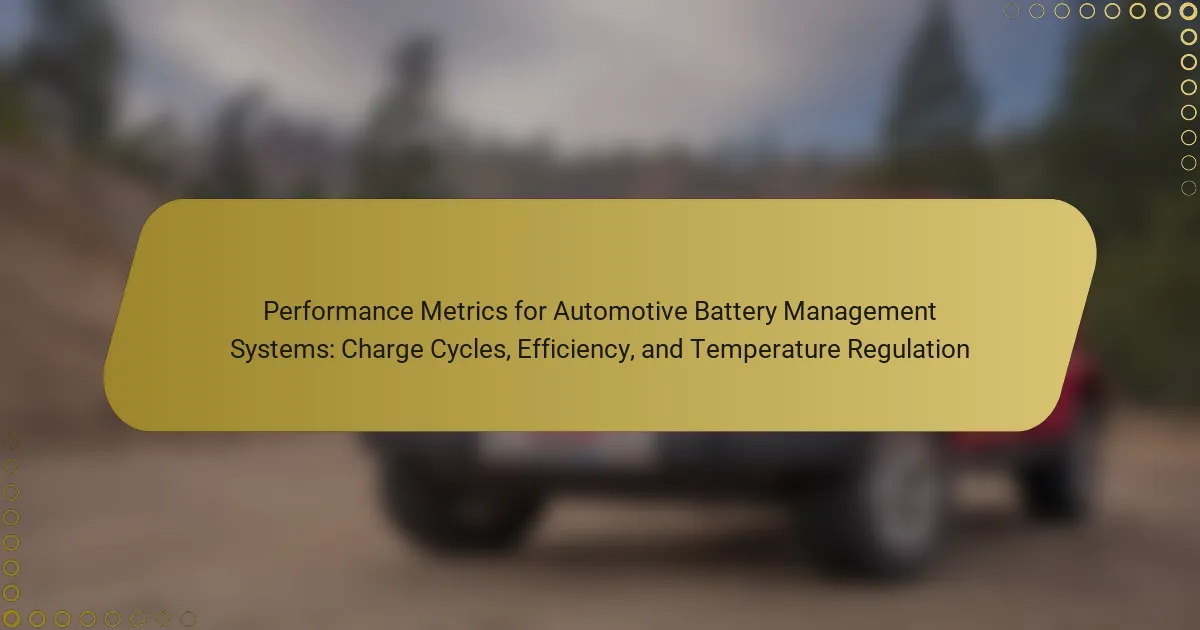Automotive battery management systems are essential for monitoring and optimizing the performance of electric vehicle batteries. Key performance metrics for these systems include charge cycles, which quantify the number of complete charge and discharge cycles a battery can endure; efficiency, which measures the ratio of energy output to energy input; and temperature regulation, which ensures […]

The Impact of Telematics on Fleet Management Efficiency
Telematics is a technology that significantly enhances fleet management efficiency by providing real-time data on vehicle location, fuel consumption, and driver behavior. This data enables fleet managers to optimize routes, reduce fuel costs, and schedule maintenance, ultimately preventing costly breakdowns. Studies indicate that fleets utilizing telematics can achieve a reduction in fuel consumption by 10-15%. […]
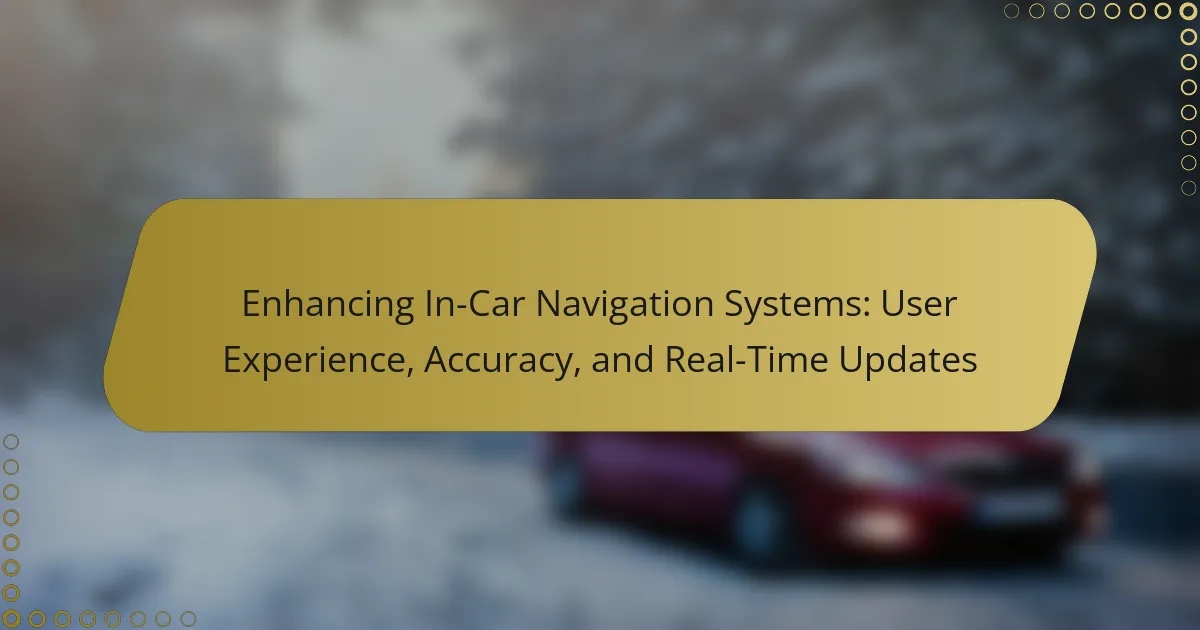
Enhancing In-Car Navigation Systems: User Experience, Accuracy, and Real-Time Updates
In-car navigation systems are electronic devices that utilize GPS technology to provide drivers with directions and location information. This article explores the critical aspects of enhancing these systems, focusing on user experience, accuracy, and the importance of real-time updates. It highlights how effective user interface design can improve driver safety and satisfaction, while high accuracy […]

The Impact of Warranty Terms on Automobile Computer Retail Purchases
Warranty terms in automobile computer retail purchases define the conditions for product coverage against defects and malfunctions, including the duration of coverage and what is included, such as parts and labor. These terms significantly influence consumer behavior, with longer warranties often perceived as indicators of reliability. Trends indicate an increase in warranty duration and scope, […]
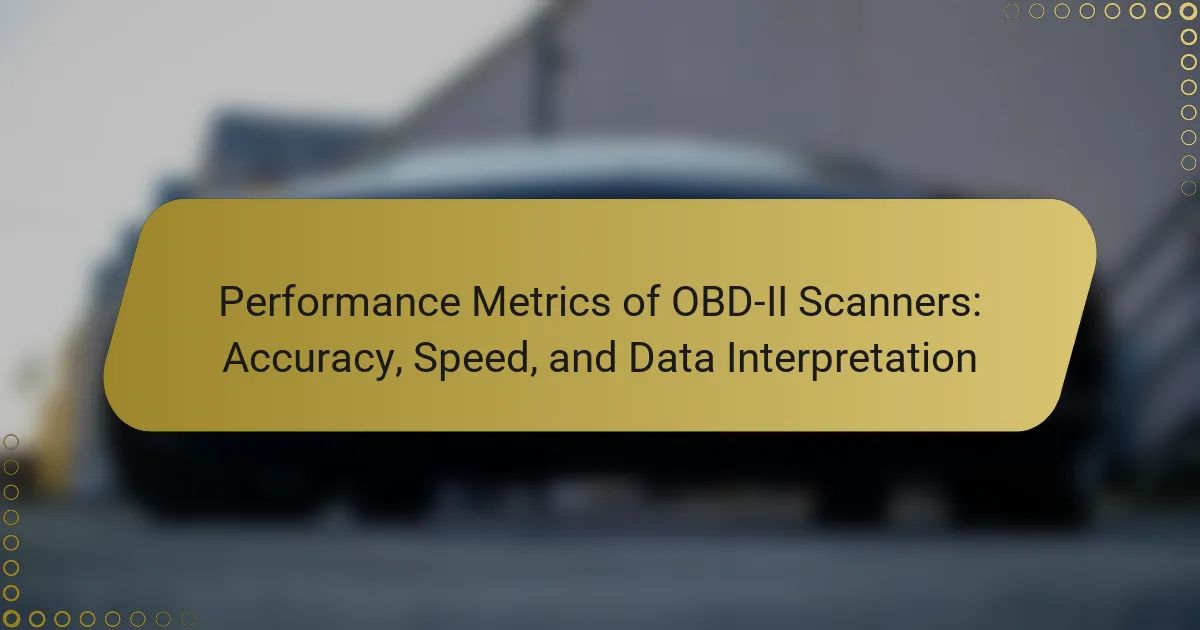
Performance Metrics of OBD-II Scanners: Accuracy, Speed, and Data Interpretation
OBD-II scanners are essential tools for diagnosing vehicle issues, with performance metrics focusing on accuracy, speed, and data interpretation capabilities. Accuracy measures the scanner’s efficacy in reading and interpreting diagnostic codes, while speed reflects the time taken to retrieve data from the vehicle’s onboard computer. Data interpretation involves analyzing diagnostic trouble codes (DTCs) and live […]

Key Attributes of Motherboards for Enhanced Overclocking Capabilities
High-quality motherboards are essential for enhanced overclocking capabilities, featuring robust power delivery systems, advanced cooling solutions, and extensive BIOS options. These attributes ensure stable voltage and current to the CPU, effective heat dissipation, and granular control over system settings, respectively. Key challenges in overclocking include stability issues, heat management, and compatibility problems, which can hinder […]
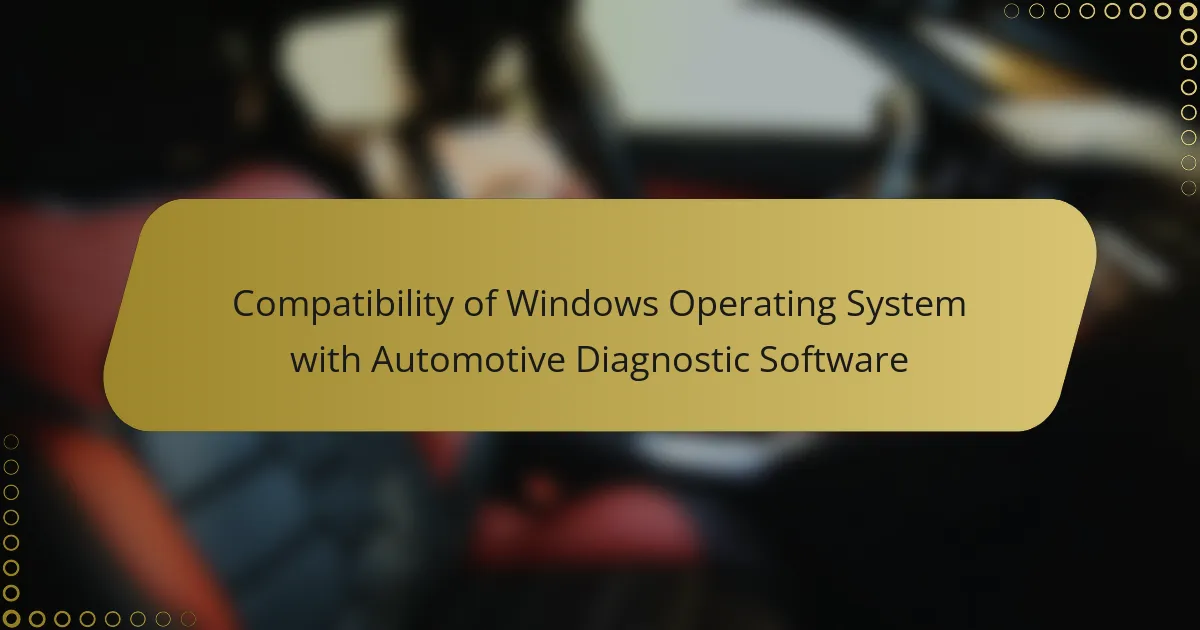
Compatibility of Windows Operating System with Automotive Diagnostic Software
The Windows Operating System is a widely used platform for automotive diagnostic software, enabling effective vehicle diagnostics through various applications and tools. Many automotive diagnostic tools, including OBD-II scanners, are specifically designed to operate on Windows, ensuring full functionality for users. Manufacturers often develop Windows-based applications that can seamlessly interface with vehicle onboard systems, leveraging […]
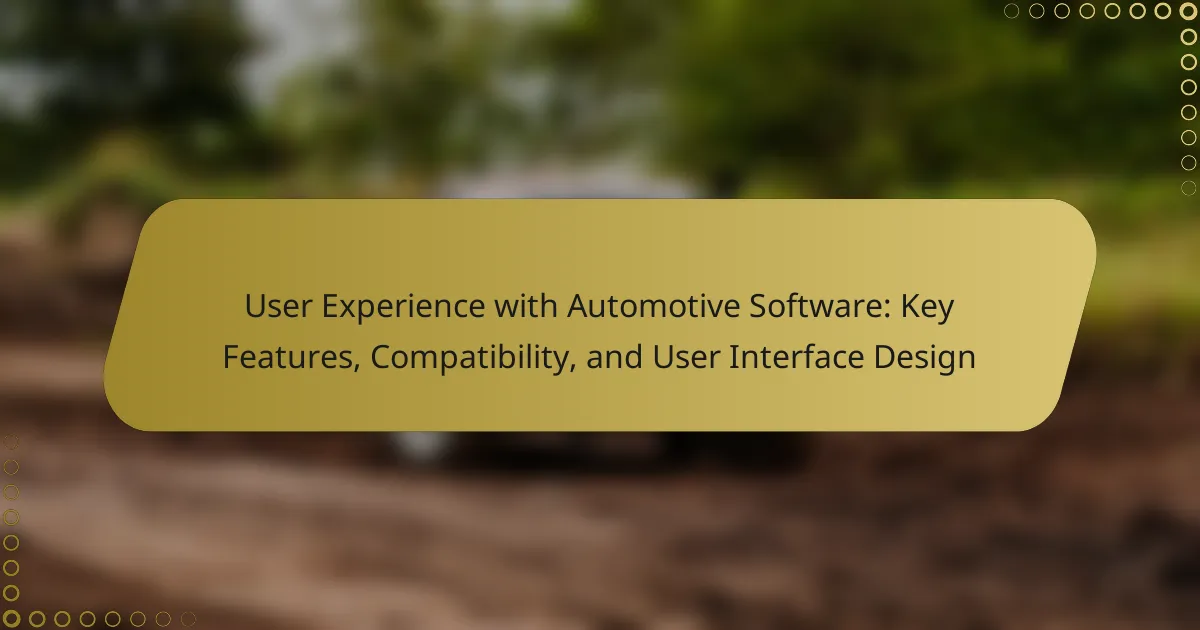
User Experience with Automotive Software: Key Features, Compatibility, and User Interface Design
User experience in automotive software encompasses the overall satisfaction and interaction users have with in-vehicle software systems, focusing on interface design, functionality, and ease of use. Key features include real-time data processing, connectivity, user interface design, and advanced driver-assistance systems (ADAS), all of which enhance driving safety and performance. Compatibility is crucial for seamless integration […]
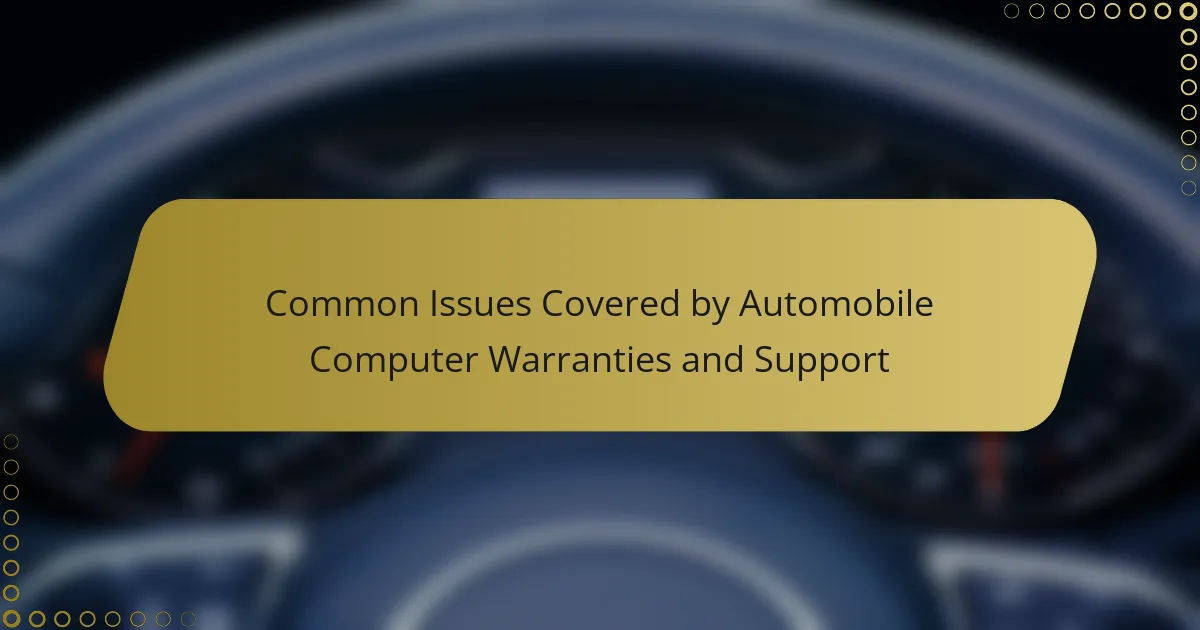
Common Issues Covered by Automobile Computer Warranties and Support
Automobile computer warranties provide coverage for various electronic control units (ECUs) within vehicles, specifically addressing software malfunctions, hardware failures, and sensor errors. Key components affected include the engine control unit (ECU), transmission control module (TCM), and systems such as anti-lock brakes. These warranties typically encompass repairs or replacements for faulty parts, as well as troubleshooting […]

Essential Factors to Consider in Choosing a Hard Drive: Capacity and Speed
Choosing a hard drive involves evaluating several essential factors, including capacity, speed, form factor, interface, reliability, and price. Capacity indicates the amount of data storage, typically ranging from 500 GB to several terabytes, while speed varies between traditional Hard Disk Drives (HDDs) and Solid State Drives (SSDs), with the latter offering significantly faster data access […]
